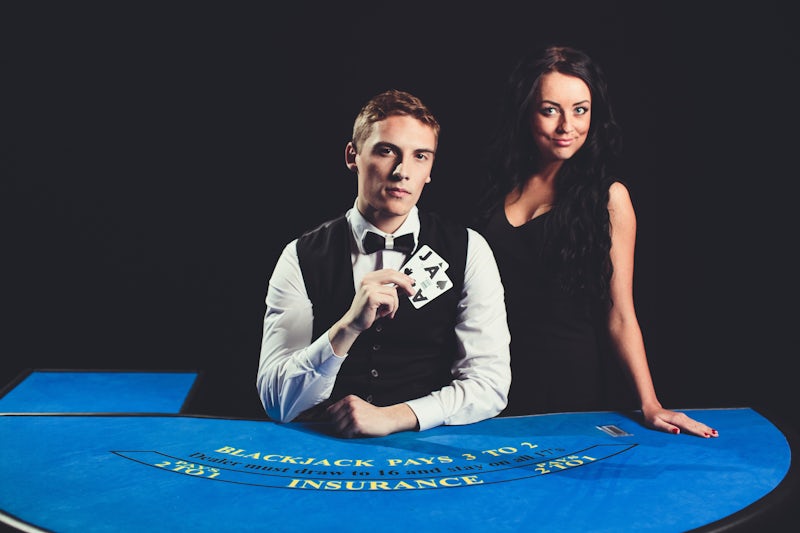ADVERTISEMENT
When to double down in blackjack

While it’s right to say we play blackjack because it’s fun, the underlying driver is to try and profit. It’s a simple game where you can only ever win the amount you staked on the hand (unless you hit a blackjack, when the return is higher). So, the trick is to get as much on the table as possible when it’s prudent to do so.
That’s not to say you should overstretch yourself and raise your stakes all the time. Instead, you should take advantage of the opportunity to double down in blackjack.
What does double down mean in blackjack?
The concept of blackjack is simple – to get as close to 21 as possible without going bust, and to beat the dealer’s total. After you receive your two cards, and see the dealer’s face-up card, you have a choice to stand (do nothing), hit (take another card) or double down.
When you double down, you match your initial bet with another and receive one more card.
You now have a bigger bet behind you that you hope to win back with a 1:1 return from the dealer.
Clearly, you would only double down in blackjack when you think you have a good chance of winning the hand.
When should you double down?
Once you recognize the basic probability that the next card dealt will be valued at 10 (because all picture cards are valued 10 in blackjack), then you can, with a little more authority, take a more profitable line.
Let’s say your two cards are total nine, 10, or 11. Given that it’s likely the next card would be a 10, then it is correct to double down because you have a good chance of making 19, 20 or 21 with the third card.
Even if the third card is a brick – and double down rules say you can receive no further cards - you still have a chance to win the hand because the dealer might bust.
Another time you can double down is if the dealer is showing one weak card like a five or a six. The chances are his next card will be a 10, meaning his total is 15 or 16, and he will have to draw again, likely going bust. In this case, the courageous might consider doubling down with any two cards valued below 11.
If the dealer has a mediocre card, you might also consider doubling down in blackjack if you have a soft 16, 17, or 18 (when you have an ace and a five, six, or seven). This is because your total is either six or 16, 7 or 17, or 8 or 18. Your extra card might be low and nudge you towards 21. But any high value means you just add it to the six, seven, or eight total.
Remember that how to double down and split in blackjack means different things. To split, you must receive two cards of the same value. You can split them, adding an identical bet, and then receive a new card on each and play them as separate hands. This is another way of putting extra money on the table if you have a strong pair, and the dealer looks weak.

When should you not double down?
Even if you show a total of 10 or 11, you might think twice about doubling down if the dealer is also showing a 10 or has an ace – that’s because there is a real chance he at least matches your score, so you are risking double for a possible push.
It is also a non-starter to double down with any total over 11, even if the dealer has a terrible card because you risk going bust.
See when to double down for yourself
There’s no better way to learn than by playing for yourself. Sign up for a BetAmerica Casino account today, and you can play for free before risking a cent. When you wish to play for real, make sure you take advantage of our first deposit bonus.
ADVERTISEMENT